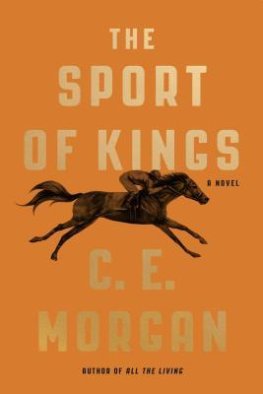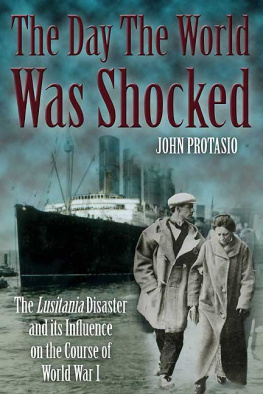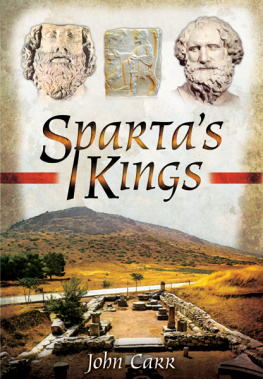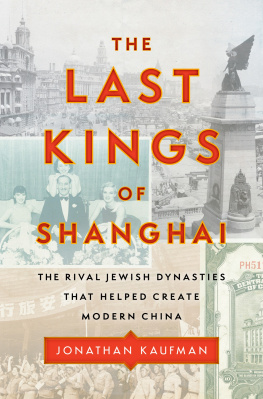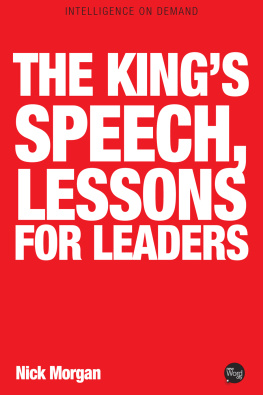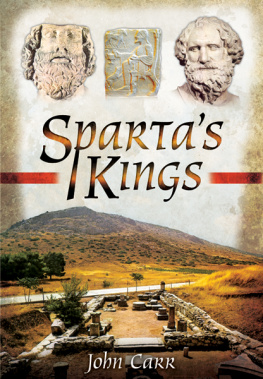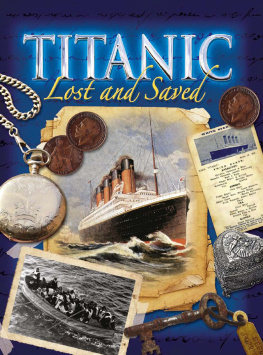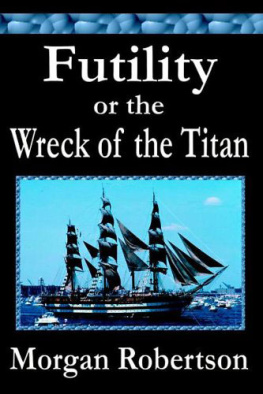About the Author
Steve Gittelman has authored three books on the Vanderbilts and related topics. He has served as the president of the Vanderbilt Museum on Long Island, New York for fifteen years and as trustee for twenty years. He speaks globally on sampling theory in Market Research and is the president of his own market research company.
Acknowledgments
My interest in the vibrant period of American history captured as the nineteenth century transformed into the twentieth was precipitated by my affection for the Vanderbilt Museum in Centerport, New York. There I became steeped in William K. Vanderbilt IIs life and the treasures that he left behind. It has been a wonderful and warm adventure that I shared with my daughters Emily and Sara.
As a volunteer trustee and board president I have been the lucky recipient of so much that it defies description. Perhaps the greatest beneficiary has been me. While Dad lovingly toiled through fifteen years as museum president, he also played at his role as John the Gardener, a fictitious character who, in the company of either Margaret, the sea plane pilots daughter (my own daughter Emily), or Rosemarie (daughters Emily and Sara), Mrs. Vanderbilts daughter, enjoyed life in the nineteen thirties as a member of the living history cast of characters. The day began with a ride in our Ford Model AA truck, emblazoned with John the Gardener established 1931. Fun began when we went into character at home and ended when we finished recounting the days adventures on return. These are my best memories. A dad has no right to ask for more.
The kids have moved on and John the Gardener seems to have retired. But the passion still continues in me to write the stories that we discovered. Emily and Sara are women of which their father is quite proud. Emily, thank you for editing this and all my other writings; you are beautiful, brilliant and talented.
Of course there are others who I owe a deep debt of gratitude. To Jennifer, my wife, I plead for forgiveness as there were so many nights that I disappeared into the lives of people long gone who in turn awoke in me something that has given me great personal joy. You gave me a willing ear to share whatever discovery excited me as the story exposed its hidden shoulders.
To Elaine Trimarchi I extend my endless thanks for struggling through the draft and providing me with support, encouragement and patience.
Michael Dooling, humble thanks for assisting me in conducting research. Carole Hart for her encouragement. Bill Rogers for listening to all my latest discoveries. To Patty Dennis, someone I never met, who so kindly researched the Vernon Brown/Theodore Burton letters for me. It was a kindness to a stranger.
People at my place of work, Mktg, Inc. tolerated my incessant search for material and assisted beyond the call, particularly Ryan McRedmond and Nancy DePaolo for able research assistance and struggling through all the clerical demands that such a project can entail.
Afterword
Despite the increasingly hostile view of trusts, the IMM had been received positively by the American people. Scientific American reported in its July 1902 issue that the IMM had been greeted with a distinct feeling of pride and satisfaction. 1 As already described, that sentiment may only have been reflected in the East and was never adopted by a majority in Congress. The subsidy bill had never come to the rescue of Morgan. Protectionist America was infatuated with Tariffs. The idea of subsidies fell on the wrong side of the argument. Indeed, it formed a sort of tariff in that it made competition from outside struggle against yet another obstacle, but a subsidy was not a tariff equivalent in the calculus of the time.
Hanna failed to recognize that the Commonwealth argument was beginning to pale. His was a world where what appeared to benefit all, albeit indirectly, was for the common good. Instead, the world was becoming one of special interests. Hanna was a master statesman in that he knew how to grow power through the electorate, but he had never sponsored an important piece of legislation of his own. Perhaps what he felt were compelling arguments fell short because they were no longer the arguments of the time.
Strangely, one of the groups that undermined him were the ship builders. They did not want a shipping subsidy; they preferred a more direct relief from high costs of labor and materials, particularly the inflated price of steel. Ship builders wanted preferential railroad rates and exemptions from tariffs on ship building materials.
Hannas downfall came from Burton, who had a particularly advantageous position to do him harm: he was from the same town. Hannas vision was always national in scope and Burton went by the mantra that all politics are local. Both men were right, but the inalienable strength Burton had due to his rock-hard support from his local constituency made him unassailable by Hanna. What both Hanna and Morgan failed to grasp was that while the Trust was the eventual tool in creating big business, its negatives were a powerful political tool against it.
The fundamental problem for Morgan was that he had stepped out of his traditional role as banker and had become too involved with his own creation. The dream had not been his but rather Griscom, and Bakers. Morgan must have assumed that the two shipping men knew what they were aspiring to. He followed their dream to create an American shipping power despite the failures that they had witnessed. They knew that American shipping was strangled by higher costs and inefficiencies. They should have known that the operational efficiencies achieved by a trust company might not compensate for the higher costs of crews and ships that were already the death knell of the prior experiments in American shipping. They obviously believed in their concept as they took heavy risks and probably paid dearly for the privilege. Perhaps they believed that a subsidy would be ushered in by the giant J.P. Morgan. They were wrong, and so was Morgan. He made them leaders in the operations of the combine and learned too late that they were over their heads.
It had taken Morgan twelve weeks to put together the steel combination and years to gather the IMM. Objections to what Morgan was attempting were voiced loudly in Congress and Great Britain. The Cunard had done what it had to do and later proceeded to impede what Morgan needed to do: control competition.
While subsidy for the Cunard put it in an improved position from a competitive standpoint, it was the confluence of National Security and pride that helped to propel it into that position. Morgan needed to dislodge the Cunard to keep it from doing what it did in the price wars of 1904. Those competitive contests were what the IMM needed most to avoid, and its inability to combat the Cunard without taking on substantial losses and without bringing the Cunard into submission ended hope.
Perhaps Morgan allowed the subsidy to be inflated to a level of importance too great for those who would purchase the debentures that Morgan needed to sell in order to keep his cash consuming monster afloat. Instead, subsidies which were never likely to pass failed, taking with them the confidence that markets might have imbued in the new Morgan venture.
The subsidies were doomed to failure from the beginning. There was little good economic reason to pass them in the first place. American shippers were confronted with higher costs of operations that by their own calculations were in the area of some 40% over comparable operations on the continent. The subsidy was unlikely to have made up for such an operational gap. In fact, if the subsidies were capable of making American ships competitive, then they would have had to do so at the expense of European vessels.
American vessels cost more to build than their European counterpart and were more costly to operate. However, shipbuilders and shippers are at strangely different ends of the same issue. Shippers need to buy their vessels at the lowest price possible and shipbuilders need to sell them at the highest. The subsidy, if it were to have been passed, would have provided income to shippers making them more competitive against their European counterparts. But if they did not improve their costs of operations, it would have meant adding more American ships to an already flooded market. That would not tend to lower prices to consumers; empty ships have the same if not equal overhead as do loaded ships, except in fuel consumption. But since the largest component in running a ship is labor, there would be no savings. Thus more ships with fixed overhead would have divided a fixed shipping burden; the ships who made passage would have travelled with a partial load. The costs of travelling with a partial load would likely increase the cost of transport or ships would have to lie fallow at dock. Someone was going to lose.


